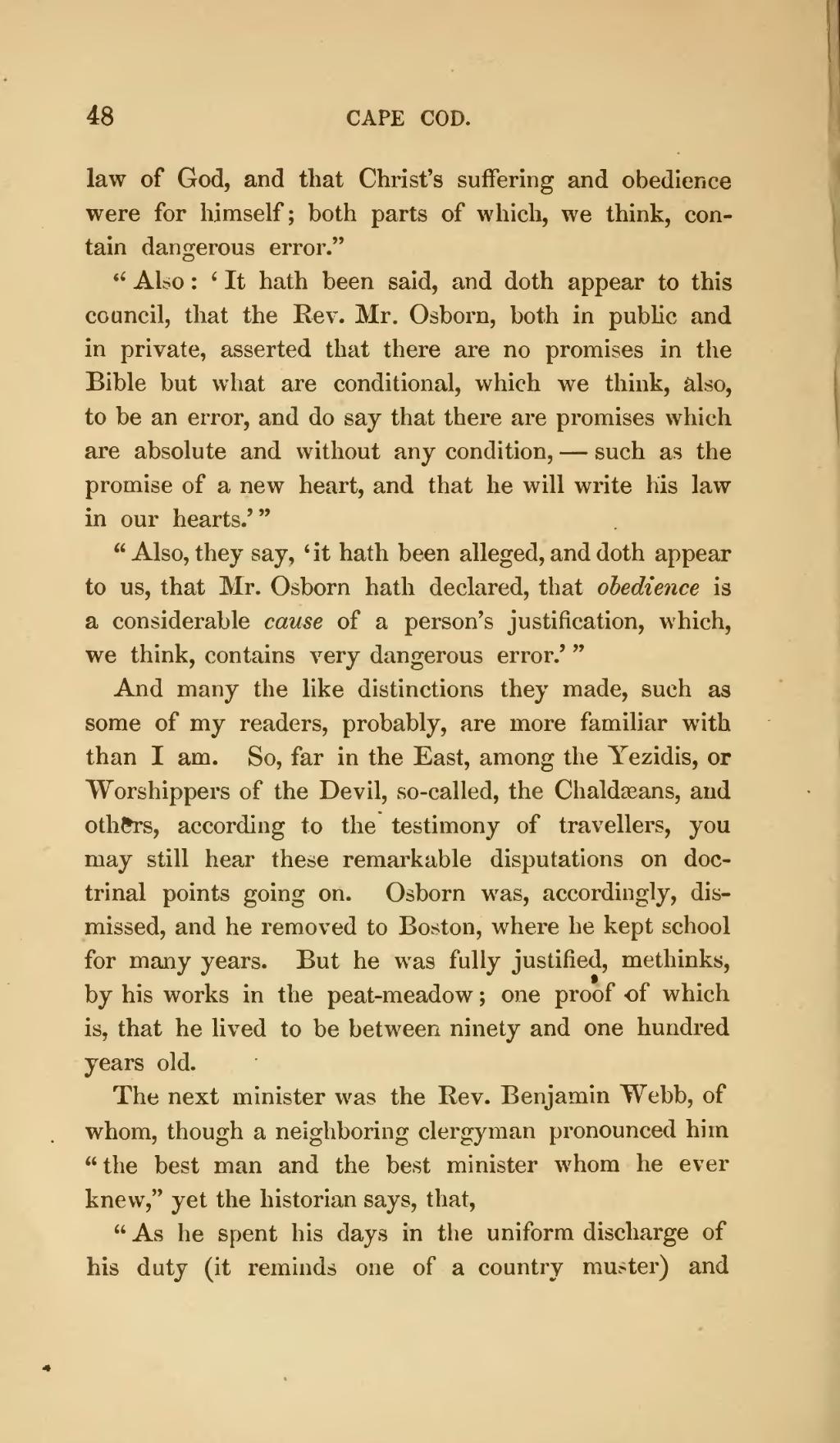law of God, and that Christ's suffering and obedience were for himself; both parts of which, we think, contain dangerous error."
"Also: 'It hath been said, and doth appear to this council, that the Rev. Mr. Osborn, both in public and in private, asserted that there are no promises in the Bible but what are conditional, which we think, also, to be an error, and do say that there are promises which are absolute and without any condition,—such as the promise of a new heart, and that he will write his law in our hearts.'"
"Also, they say, 'it hath been alleged, and doth appear to us, that Mr. Osborn hath declared, that obedience is a considerable cause of a person's justification, which, we think, contains very dangerous error.'"
And many the like distinctions they made, such as some of my readers, probably, are more familiar with than I am. So, far in the East, among the Yezidis, or Worshippers of the Devil, so-called, the Chaldæans, and others, according to the testimony of travellers, you may still hear these remarkable disputations on doctrinal points going on. Osborn was, accordingly, dismissed, and he removed to Boston, where he kept school for many years. But he was fully justified, methinks, by his works in the peat-meadow; one proof of which is, that he lived to be between ninety and one hundred years old.
The next minister was the Rev. Benjamin Webb, of whom, though a neighboring clergyman pronounced him "the best man and the best minister whom he ever knew," yet the historian says, that,
"As he spent his days in the uniform discharge of his duty (it reminds one of a country muster) and
